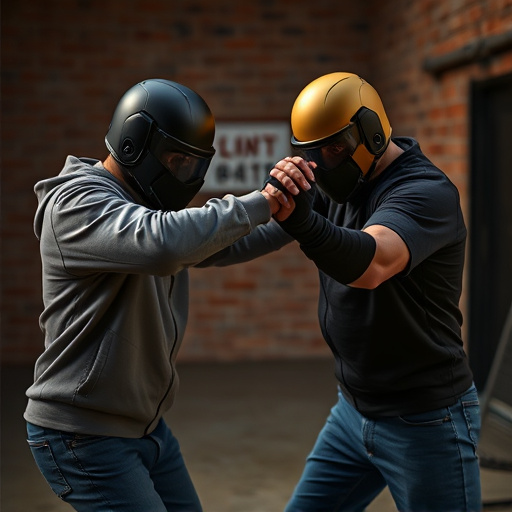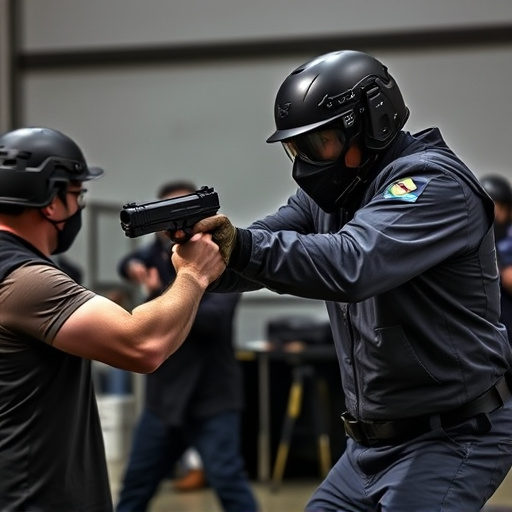In the US, state laws regarding the ownership of rechargeable lithium stun guns (tasers) differ significantly, with age restrictions, permit requirements, and safety guidelines. Prospective buyers must research their state's legislation, which may include background checks, training, or registration, to legally acquire these devices for personal protection. Understanding local rules is crucial to avoid penalties, as some states allow ownership with specific criteria, while others restrict or prohibit them.
“Uncovering the legal landscape surrounding civilian taser ownership is essential for anyone considering purchasing this personal safety device. This article delves into the intricate details of state laws regulating taser ownership, with a specific focus on rechargeable lithium stun guns. We explore eligibility criteria, navigate the purchase process, and provide insights into ensuring compliance. Understanding these requirements is crucial before embracing the power of self-defense tools like tasers.”
- Understanding State Laws Regulating Civilian Taser Ownership
- Rechargeable Lithium Stun Guns: A Legal Perspective
- Eligibility Criteria for Owning a Taser
- Navigating the Purchase and Possession Process of Civilian Tasers
Understanding State Laws Regulating Civilian Taser Ownership

In the United States, the ownership and regulation of rechargeable lithium stun guns, often referred to as tasers, vary significantly from state to state. Understanding these state laws is crucial for anyone considering purchasing a taser for personal protection. Each state has its own set of requirements and restrictions, covering issues like age limitations, permit or license mandates, and specific regulations around carrying and using these devices.
Civilian taser ownership advocates argue that responsible individuals should have the right to protect themselves, while critics raise concerns about misuse and accidental deployment. To navigate this complex landscape, prospective buyers must thoroughly research their state’s legislation. Many states require a background check and permit application process, ensuring that only qualified individuals can obtain tasers. Some even mandate specific training or safety courses before allowing civilian ownership of these powerful tools.
Rechargeable Lithium Stun Guns: A Legal Perspective

Rechargeable Lithium Stun Guns have gained popularity among civilian users seeking personal protection devices. From a legal perspective, their status varies across states in the US. Many states allow the possession of rechargeable lithium stun guns with certain restrictions. These typically include age requirements, registration or permit systems, and limits on power output. Some states, however, restrict or outright prohibit their use due to concerns over misuse, accidental discharge, and potential harm to bystanders.
Understanding local laws is crucial before purchasing a rechargeable lithium stun gun. Non-compliance can lead to severe penalties, including fines and imprisonment. It’s recommended that individuals interested in owning such devices consult with legal experts or check state legislation to ensure they are adhering to the current legal framework governing civilian ownership of stun guns, particularly those involving rechargeable lithium technology.
Eligibility Criteria for Owning a Taser

In most states, civilians can own a taser, but there are strict eligibility criteria to be met. Potential owners typically need to be at least 21 years old and pass a background check, which may include verifying their identity, criminal history, and mental health records. Some states also mandate completion of a safety training course before purchasing or using a stun gun, focusing on responsible ownership and safe application techniques. These requirements vary by location, with some areas having more stringent rules than others, but they are designed to ensure public safety and prevent misuse of these powerful tools.
Rechargeable lithium stun guns, a popular choice among civilians for self-defense, often fall under the category of less-lethal weapons. Laws regarding their ownership tend to be more relaxed compared to firearms, but individuals should still familiarize themselves with local regulations. This includes understanding waiting periods, registration requirements, and any restrictions on the type, power level, or capacity of the stun device they intend to purchase. Staying informed about state laws is crucial for responsible taser ownership and avoiding legal complications.
Navigating the Purchase and Possession Process of Civilian Tasers

Navigating the purchase and possession process of civilian tasers involves understanding state laws and regulations, which can vary significantly. Before buying a rechargeable lithium stun gun, potential owners must research their local, state, and federal guidelines. Many states require individuals to be at least 18 years old, pass a background check, and complete a training course to legally acquire a taser. Some even mandate specific waiting periods between the purchase and possession of such devices.
The process typically begins with identifying authorized retailers or dealers who sell civilian tasers. Customers should ensure these outlets provide transparent information on product features, legal restrictions, and safety guidelines. Once selected, buyers must present valid identification, undergo a background check, and potentially pay associated fees. Successful completion of this stage clears the way for purchasing and possessing a rechargeable lithium stun gun under the governing laws.
Understanding state laws regarding civilian taser ownership is crucial before considering the purchase of these powerful tools. With varying eligibility criteria and strict navigation processes, ensuring compliance with regulations is essential. Rechargeable lithium stun guns, a popular choice, require careful consideration under these laws. By delving into the legal perspective, prospective owners can make informed decisions, ensuring they meet all requirements to possess a taser responsibly.
